Related Research Articles

Dorothea Jordan was an Anglo-Irish actress, as well as a courtesan. She was the long-time mistress of Prince William, Duke of Clarence, and the mother of 10 illegitimate children by him, all of whom took the surname FitzClarence. She was known professionally as Dorothea Francis and Dorothea Jordan, was informally Dora Jordan, and she commonly was referred to as Mrs Jordan and Mrs FitzClarence.

Alison Cockburn also Alison Rutherford, or Alicia Cockburn was a Scottish poet, wit and socialite who collected a circle of eminent friends in 18th-century enlightenment Edinburgh including Walter Scott, Robert Burns and David Hume.

Jane Pope was an English actress.

Mary "Moll" Davis, also spelt Davies or Davys, was a courtesan and mistress of King Charles II of England. She was an actress and entertainer before and during her role as royal mistress.

Edward Solomon was an English composer, conductor, orchestrator and pianist. He died at age 39 by which time he had written dozens of works produced for the stage, including several for the D'Oyly Carte Opera Company, including The Nautch Girl (1891). Early in his career, he was a frequent collaborator of Henry Pottinger Stephens. He had a bigamous marriage with Lillian Russell in the 1880s.
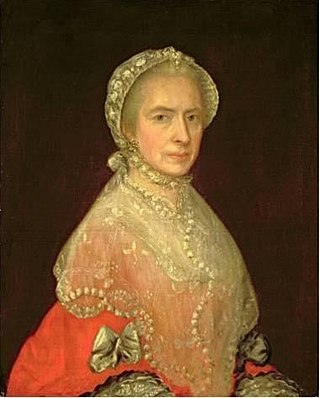
Willielma Campbell, Viscountess Glenorchy was a patroness of evangelical missionary work and founder of several chapels in Scotland, England and Wales.
Seedo, also called Mr Seedo, as his forename is unknown, was a German composer who worked primarily in England until 1736 when he became musical director to Friedrich Wilhelm I of Prussia.
Polly Young was an English soprano, composer and keyboard player. She was part of a well-known English family of musicians that included several professional singers and organists during the 17th and 18th centuries. Her husband, François-Hippolyte Barthélémon, was a composer and violinist, and their daughter, Cecilia Maria Barthélemon, was also a composer and opera singer.

Anastasia Robinson, later known as Anastasia, Countess of Peterborough, was an English soprano, later contralto, of the Baroque era. As a performer, she is best remembered for her association with the composer George Frideric Handel, in whose operas she sang. She created roles in the world premieres of several of Handel's operas, including Zenobia in Radamisto (1720), Irene in Muzio Scevola (1721), Elmira in Floridante (1721), Matilda in Ottone (1723), Teodata in Flavio (1723), and Cornelia in Giulio Cesare (1724).
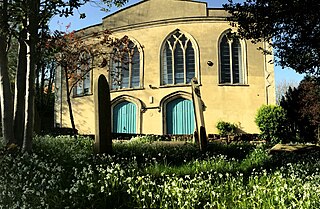
Hope Chapel is home to Hope Community Church in Hotwells, Bristol, England. It is a Grade II listed building.

Henrietta Knight, Baroness Luxborough, was an English poet and letter writer, now mainly remembered as a gardener. She married the rising politician Robert Knight in 1727, but he banished her to his estate at Barrells Hall in 1736 as punishment for a romantic indiscretion. Horace Walpole's correspondence suggests she was caught by her husband in flagrante delicto with her doctor, whilst other sources add a further lover in the form of a young cleric named John Dalton (1709–1763).
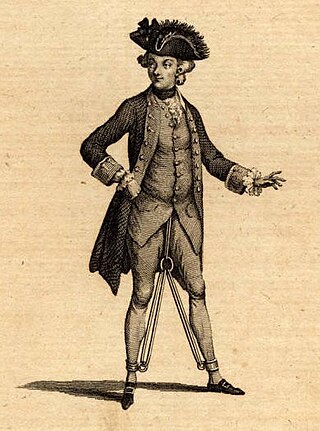
Margaret Kennedy was a contralto singer and actress. She was best known for her performances in male roles, especially in the operas of Thomas Arne.
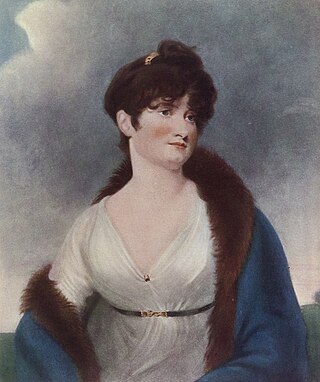
Rosemond Mountain or Rosemond Wilkinson was a British actress and soprano. She was said to be the "best female singer on the English stage" from 1800.

Charles Peter Layard, F.R.S., D.D. was Dean of Bristol from 1800 until his death.
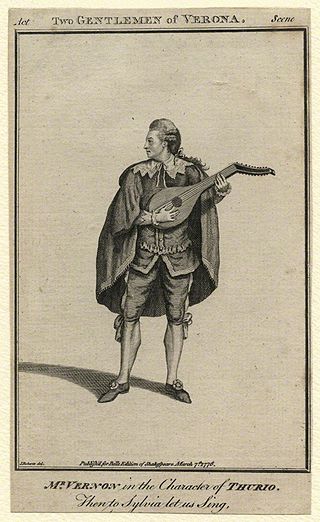
Joseph Vernon was an English actor and singer. From his days as a boy soprano, he had a successful career on the London stage, interrupted only by the aftermath of an underage wedding to a colleague.

Hannah Norsa was an English Jewish actress and singer, who achieved fame appearing in John Gay's The Beggar's Opera in 1732 and became the mistress of Robert Walpole, 2nd Earl of Orford.
Henrietta Amelia Leeson was an English actress of the 18th-century. Known as Mrs Lewis after her marriage to the actor William Thomas Lewis In 1780, she appeared regularly with him at the Theatre Royal, Drury Lane. She made over 100 appearances on the London stage between 1775 and 1791.
Maria Manina, later Maria Fletcher later Maria Seedo/Sydow, was an Italian opera and concert singer. She came to notice in London in 1712 and was last recorded in Potsdam in 1736.

Henrietta Gayer born Henrietta Jones was a Methodist leader in Lisburn in Ireland.
Mary Hodgson was an English soprano.
References
- 1 2 3 4 Olive Baldwin, Thelma Wilson, 'Poitier, Jane Henrietta (b. 1736, d. in or after 1788)', Oxford Dictionary of National Biography, Oxford University Press, 2004; online edn, Jan 2014 accessed 19 June 2017
- ↑ A Collection of the Most Remarkable and Interesting Trials: Particularly of Those Persons who Have Forfeited Their Lives to the Injured Laws of Their Country. R. Snagg. 1776. pp. 653–655.
- ↑ Frances Brooke; Mary Jane Edwards (15 September 1985). History of Emily Montague. McGill-Queen's Press – MQUP. p. lxiii. ISBN 978-0-7735-7339-0.
- ↑ Baldwin, Olive; Wilson, Thelma. "Poitier, Jane Henrietta". Oxford Dictionary of National Biography (online ed.). Oxford University Press. doi:10.1093/ref:odnb/64357.(Subscription or UK public library membership required.)
- ↑ Philip H. Highfill; Kalman A. Burnim; Edward A. Langhans (1993). A Biographical Dictionary of Actors, Actresses, Musicians, Dancers, Managers & Other Stage Personnel in London, 1660–1800: Tibbett to M. West. SIU Press. pp. 143–. ISBN 978-0-8093-1802-5.
- ↑ Lee, Sidney, ed. (1899). . Dictionary of National Biography . Vol. 58. London: Smith, Elder & Co.